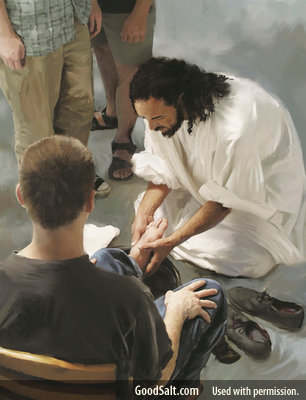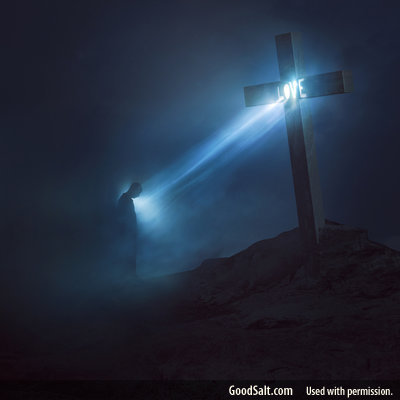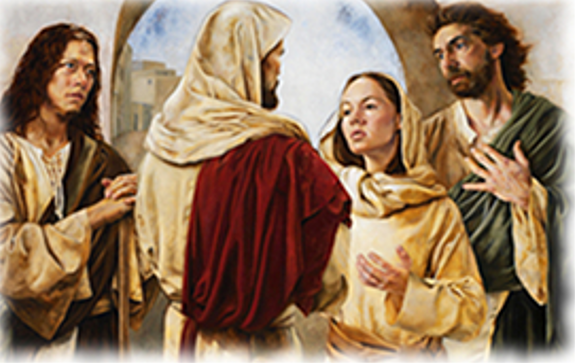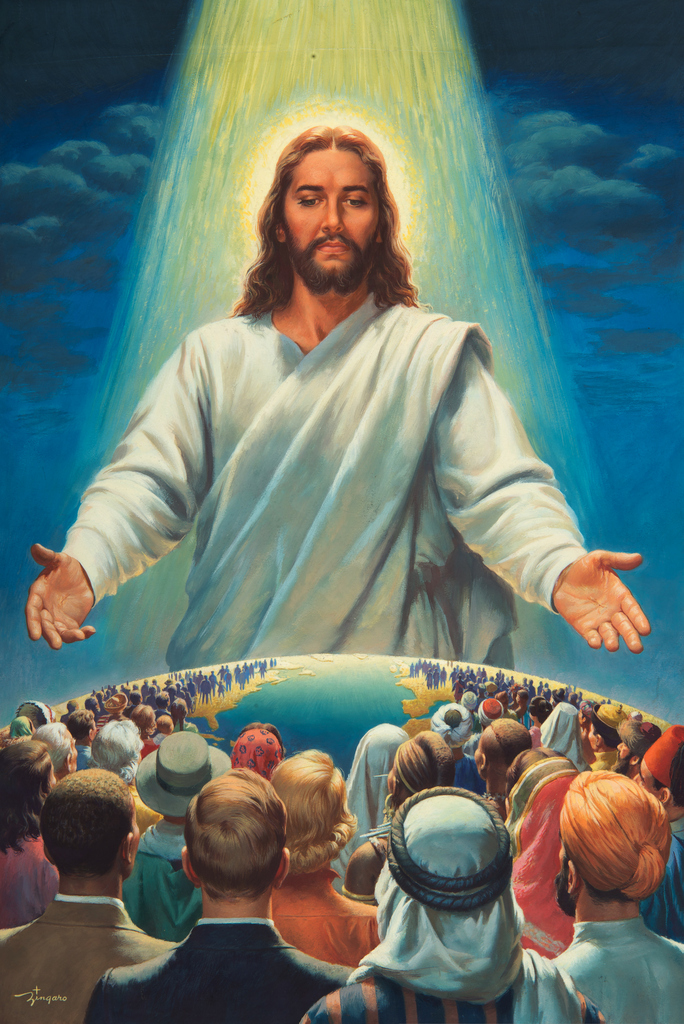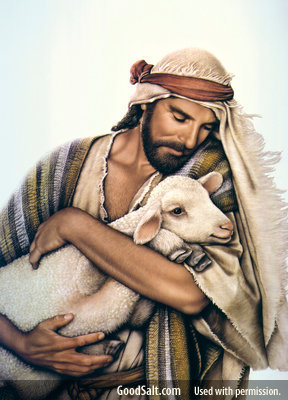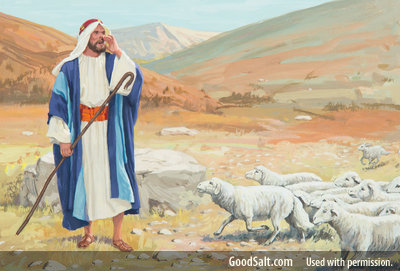“Then they sought Jesus…” John 11:56a
We are learning from the conflict over the raising of Lazarus from the dead (John 11:44-57) how the providence of God and the plans of people work together for God’s glory. So far we have learned that…
– Plans to oppose Christ can arise from fear and jealousy (John 11:45-48).
– God uses the plots of man to accomplish His purposes (John 11:49-53).
– At times we are not meant to face opposition so we can pursue more important relationships (John 11:54).
The final principle we learn from this conflict over Jesus’ miracle is that CHRIST’S CONTROL OVER HIS OWN FUTURE DEMONSTRATES HIS POWER TO CONTROL OURS (John 11:55-57). The apostle John informs us, “And the Passover of the Jews was near, and many went from the country up to Jerusalem before the Passover, to purify themselves.” (John 11:55). The Passover feast “was near,”perhaps two to three weeks away. This is the fourth and final “Passover” that John mentioned in his gospel (cf. 2:13; 5:1; 6:4). The John 5:1 reference to “a feast” is considered to be one of the three pilgrim feasts – Passover, Pentecost, or Tabernacles. I take it to refer to Passover.
The Mosaic Law required that the Jews who had become ritually unclean had “to purify themselves” for one week before participating in this feast (Num. 9:6-14). Therefore “many” of them “went…up to Jerusalem” because Jerusalem is in the mountains and most approaches would require an ascent in elevation. They went at least one week“before” the feast began to “purify themselves” ceremonially so they could participate in the Passover. According to the Mishnah (the first major written redaction of the Jewish oral traditions known as the “Oral Torah”), this cleansing was done by immersion in a ritual bath called a miqueh (Mikua’ot 4.1). 2
From the time of Israel’s redemption from Egypt, the annual slaying of the Passover lamb looked forward to the Lamb of God (John 1:29) who, by His sacrifice (John 11:50-51), would provide redemption for those in bondage to sin. “Then they sought Jesus, and spoke among themselves as they stood in the temple, ‘What do you think—that He will not come to the feast?’ ” (John 11:56). Instead of paying attention to the rituals of purification for the Passover, the multitudes directed their attention toward the Person of Jesus Christ (“they sought Jesus”). Throngs of people were standing in the temple buzzing about whether Jesus would come to the feast. Their question expects a negative answer. 3 “No, Christ would not dare to come to the Passover feast! He is not that foolish!” is the expected response. The reason the crowd did not expect Jesus to come is given in the next verse.
What about us? Do we seek Jesus in our daily lives or do we focus on our religious traditions or rituals? Do we try to purify ourselves through acts of penance or prayers, or do we seek a love relationship with the Person of Jesus Christ Who alone can purify us from the inside out? Trying to reform ourselves through external observances will lead either to pride as we deceive ourselves into thinking we are superior to others through our own performance or it will lead to discouragement as we constantly fail to measure up to unattainable standards. Either way, religious rules and regulations fail to transform our sinful hearts. Only Jesus can transform our wounded and wicked hearts into that which is new and noble (cf. Ezekiel 36:26-27; John 7:37-39; Hebrews 8:10; 9:11-15; 10:10-18).
“Now both the chief priests and the Pharisees had given a command, that if anyone knew where He was, he should report it, that they might seize Him.” (John 11:57). The Sanhedrin had issued a command that anyone who knew of Jesus’ whereabouts should report it so “they might seize Him.” Silence about Christ’s whereabouts meant complicity with Christ and could be punishable. The religious leaders desperately wanted Christ arrested so they would not lose their positions or their following.
Jesus was not going to be arrested before His appointed hour. Repeatedly in the gospel of John, the religious leaders had sought to arrest and kill the Lord (John 5:18; 7:6, 8, 30, 44-45; 8:20, 59; 10:31, 39), but Jesus was not to be apprehended until His appointed time. He had control of His future.
Remember I said in Part 1 that martial law had been declared all over the southern region of the Philippines called Mindanao? Was this because of God’s providence or the plans of sinful people? I believe the answer is both. Let me explain.
Before the fighting broke out on Tuesday, May 23rd, 2017, one of my dear pastor friends was preaching the gospel at film showings the weekend before (May 20-21), in a province next to the province where the fighting broke out. He planned to stay in that province until Wednesday, May 24th. But while preaching the gospel to those hostile toward Jesus Christ, he became very sick. He texted me asking for prayer. So my wife and I began to pray, asking God to supernaturally heal him. But instead of getting better, his condition became worse. I asked the Lord, “Father, don’t You want him to get better so he can reach more of these people in this very dark area of the Philippines?” But my friend’s condition continued to worsen, so much so, that he had to go to his home in another province where he was admitted into the hospital for treatment. Fortunately, he recovered. My wife and I both realized that perhaps the reason he became so sick, was so the Lord could move him out of this critical area to a place of safety. God used this sickness to move our pastor friend, otherwise, he may have become a target in a very volatile area of Mindanao.
Christ continually demonstrated during His earthly ministry that He was in control of His future by not allowing the religious authorities to apprehend Him before His appointed time. Do you believe Jesus has control of your future? If not, there may be some issues that need to be resolved so you can trust Him with what lies ahead. For those who have felt out of control when growing up, it may be more difficult to believe that God is in control now. God will work with you where you are at. Maybe you have some unmet needs and you are not sure how they will be met. Christ knows how to meet them and He will take care of you if you will surrender to His control.
While writing this original message in my upstairs study on Thursday, May 25th, 2017, we were having a major thunderstorm in the Metro Manila area of the Philippines. There were huge cracks of thunder and lightning. Some made me wince as they boomed across the sky. I was interrupted by our helper who came upstairs with our dogs. The dogs were terrified by the loud booms and our helper said they were scratching at our screen door to come in, so she let them in. I told her, “It’s okay. They can stay up here in my study.” As the storm got louder, the dogs kept nudging me with their noses to get closer to me as I sat at my desk writing. So eventually I gave in and sat on the floor with them as they crawled onto my lap. I then sang a song to them that used to calm me during storms in my life. The lyrics are as follows:
“I don’t know about tomorrow; It may bring me poverty But the one who feeds the sparrow, Is the one who stands by me. And the path that is my portion, Maybe through the flame or flood; But His presence goes before me. And I’m covered with His blood.
Chorus:
“Many things about tomorrow, I don’t seem to understand. But I know who holds tomorrow And I know who holds my hand.”
After I sang this song to my dogs, they quieted down and eventually I let them back outside when the storm had passed. And then I did a little research about the songwriter of this song. His name was Ira Stanphill.
“In 1936, Ira launched his own revival campaign. It concluded in Springfield, Missouri, where he agreed to pastor a congregation. In Springfield, he met Zelma Lawson. She too had musical skills. They married in 1939. Together, they wrote the song ‘Room at the Cross for You,’ which they sang as a duet. Their voices rang out together on the chorus, ‘Tho’ millions have come, there’s still room for one. Yes, there’s room at the cross for you.
“However, Zelma began drifting away from the cross. She started attending nightclubs and seeing other men. She eventually filed for divorce. Zelma remarried and began singing in the nightclubs. Ira eventually gained custody of their son, Raymond. In 1951, a car accident took Zelma’s life.
“Between the divorce and Zelma’s death, Ira reached a personal low in his life. Some criticized him for continuing to preach after his divorce. The voices inside Ira’s head and heart were equally severe. He pondered the direction of his future.
“One day, driving to the church he served at the time, Ira poured out his feelings to God. By the time he reached the church, God had birthed a new song in his heart. The experience didn’t give Ira all the answers he wanted, but it gave him the total trust in God he needed. In the decades since, many have experienced fresh faith for the future upon singing or hearing the song, ‘I Know Who Holds Tomorrow.’ The song’s essence is in the words, ‘Many things about tomorrow, I don’t seem to understand; but I know who holds tomorrow, and I know who holds my hand.’ ” 4
Do you have doubts about your future? Are you uncertain of where God may be leading you? Do you sometimes wonder how God can be in control when life seems so out of control? Then remember Ira’s song. “Many things about tomorrow, I don’t seem to understand; but I know who holds tomorrow, and I know who holds my hand.” Do you know who holds your hand? If not, He is waiting to take your hand if you would trust in Him alone for His free gift of eternal life. Then He can lead you as a faithful and loving Shepherd.
Prayer: Lord Jesus, many things happen in this life – tragic things – that cause me to pause at times and question if You are truly in control. Thank You for bringing me back to You this morning. During Your earthly ministry You constantly demonstrated Your control over Your own future which guarantees Your power to control my future. When life seems out of control, the best thing I can do is to seek You and hold out my hand for You to take and lead me as my faithful and loving Shepherd. As Ira’s song says, “Many things about tomorrow, I don’t seem to understand; but I know Who holds tomorrow, and I know Who holds my hand.” Here is my hand, Lord Jesus. In Your loving name I pray. Amen.
ENDNOTES:
1. Harold W. Hoehner, Chronological Aspects of the Life of Christ (Grand Rapids: Zondervan, 1970), pg. 59.
2. William Sanfords La Sor, “Discovering What Jewih Miqua’ot Can Tell Us About Christian Baptism,” Biblical Archaeology Review (January/February 1987): 52-59.
3. Τί δοκεῖ ὑμῖν ὅτι οὐ μὴ ἔλθῃ εἰς τὴν ἑορτήν?
4. https://lights4god.wordpress.com/2012/02/14/ira-stanphill/.


